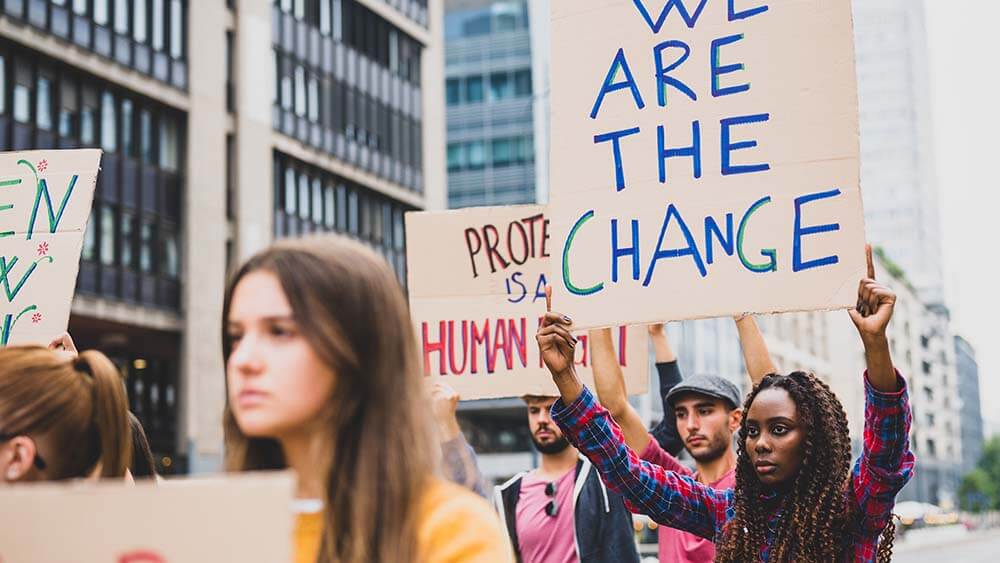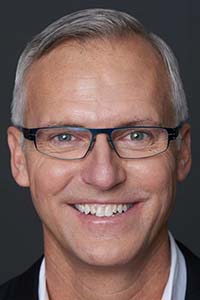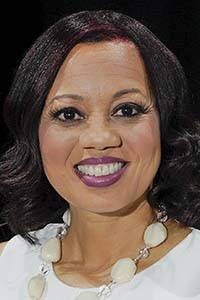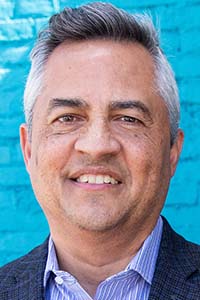
As social and political challenges come to the fore, associations, DMOs, and convention centers are faced with decisions concerning the locations of their events.
Unlike the PCMA roundtable among association planners and execs and DMOs that was convened in AGU’s offices four months earlier, the December roundtable, moderated by Peter O’Neil, FASAE, CAE, CEO of ASIS International, didn’t focus exclusively on how to navigate the events landscape in the wake of the Supreme Court’s overturning of the Roe v. Wade decision. The participants also expressed concerns about increasing rates of crime and growing homelessness as well as the high costs of doing business in host cities.
While there was unanimous agreement among all the roundtable participants that boycotting destinations based on their state’s stance on abortion rights or DEI issues did not serve the intended purpose of gaining the attention of policymakers by taking a stand — which was underscored by PCMA President and CEO Sherrif Karamat, CAE, and Destinations International President and CEO Don Welsh — several association execs voiced that it can be challenging to convey that to their constituents.
“One issue for us that we’ve had in the past few years is that we have a subset of our membership that can be pretty vocal,” said Lawrence M. Paska, Ph.D., CAE, executive director of National Council for the Social Studies. If a new law passes that they disagree with in a host destination, he said, “regardless of whether the conference is in six months or two years out, they advocate to get out. At the board level, it’s easy to say that we would go bankrupt [by doing that] because we are a small organization.” Plus, Paska added, it’s not like any association is going to “show it to that city” by pulling out. “All we’re really doing is creating a mess for everyone in the association and impacting the local economy. More importantly, we’re trying to message that we have members in these areas and these members need us. Instead of pulling out, we’re focused on what would it look like to come to a place where educators are afraid to speak out against laws that they don’t like, either, and how can we help them?”

Randy Fiser
One of the arguments for boycotting or pulling out of destinations that ban or limit access to abortion is that it is a health issue — that an attendee could be at risk if a medical complication related to her pregnancy arises while on site. AGU CEO and Executive Director Randy Fiser shared his association’s proactive duty-of-care strategy to address that concern and how to use the lens of risk management to reframe social issues. Here are highlights of his comments:
FISER: We actually have canceled a meeting in Bermuda when there was a last-minute change in their observation of gay marriage and there was a decision that was made that the safety of our community was at risk and so the decision was made to pull the event. This was prior to me joining the organization, but we have had a history where we have made decisions like that to move meetings. We also continually evaluate our criteria for where we do site selection. Every year, we look at it again and say, “Do we need to change this, based upon the evolving world and our demographic for our community?” When Roe v. Wade was overturned with the Dobbs Decision, we had a [subset] of our community that basically said, “You need to get out of New Orleans” [where we’re meeting] in 2024 and 2026 because of where Louisiana was heading. … we had a petition from our membership saying, “You need to pull this meeting.”
So what we did at a council meeting and a board meeting is we had a conversation, and we did a lot of prep work going into it with our meetings team and others and pulled from the conversations that had been going on. Lauren [Parr, AGU’s senior vice president of meetings and learning] had participated in the PCMA [roundtable on Aug. 8] and the board and council decided to expand our current definition around safety in a broader way — it hadn’t included some of the areas that are recent concerns, like guns and abortion, but we didn’t change the weighting of that criteria, we just expanded the conversation around it.
The other thing that we’ve been doing is we started looking at this as a risk management issue. Any city you go into has risk associated with it. We’re going to Chicago and yesterday we had our safety briefing. Chicago’s crime [rate] is quite high now, and the shootings that are taking place in the city are dispersed and no longer contained in one neighborhood. Our risk management plan addresses that. How do we actually deal with the fact that we’re going to be highly concentrated — 23,000 people at McCormick Place in Chicago in an area that now has gun violence. We have plans in place.
The same thing happened with Roe v. Wade as we looked at [meeting in] New Orleans. We actually went to the chief medical officer at one of their largest hospital systems, and we said: “What type of situation would you not take care of [in the case] of a woman who is pregnant and needs services for something that is going on with her baby?” They literally documented everything that they would take care of and how they would address the issue and didn’t leave much room for anything that could happen that would demonstrate that they couldn’t take care of a woman who was dealing with this [medical crisis].
The other thing that we did is talked about our evacuation strategy for medical issues and how we have dealt with that in the past, when we have a demonstration of this of … when we got someone in need of medical care on a chartered flight back to France. [We have insurance for this] but also would take that on ourselves.
We are trying to define this as a risk management strategy and less of a political conversation. What we don’t want to do is narrow ourselves down so we can’t have a meeting anywhere because the geography is changing so much.
One of the things we’re battling against related to our communities who do think that boycotting can take place is whether [the perception that it has the desired effect] is right or wrong — and this is where data can help, because people feel like there have been situations where boycotting has had an impact. For instance, in North Carolina, when people started to say, “We’re going to move our headquarters,” etc., suddenly North Carolina shifts. You have the same thing in Arizona when they said they weren’t going to recognize Martin Luther King Day people started boycotting the state, saying, “We’re not going to move our business there,” and suddenly MLK Day becomes a holiday. So I think that may be urban legend. But if we can demonstrate that that didn’t have an impact, then you [change the conversation].

Angie Gates
The 4 L Approach
As the new president and CEO of Events DC, Angie Gates told the group, it has been helpful for her to adopt what she calls the “4 L” approach. “It helps us have a different lens on whatever the topic of discussion is. I find it applicable not only internally as an organization but when we’re talking about boycotting issues,” she said.
“The first ‘L’ is ‘listen,’ including what our organization needs and our teams [need]. So when we listen, the second ‘L’ gives us an opportunity to learn. We may learn something that we don’t know. We may look at something from a different perspective. The third ‘L’ is leverage. We leverage our networks, we leverage our resources, we leverage our contacts. And then the fourth ‘L’ is then we launch. It may be a new policy, it may be a new rule, it may be a new guideline. If I take that 4 L approach, it ultimately helps move the dial forward.”

Leonard Hoops
The DMO Perspective
Leonard Hoops, Visit Indy’s president and CEO, who attended the roundtable as a virtual participant, said that “it has been an interesting process” for DMOs as legislative issues have popped up over the last decade, requiring CVB leaders to delve into areas that hadn’t previously been in their wheelhouse. As the conversation turned to how high costs have become a major concern among association leaders in the room, Hoops shared how CVBs navigate competing stakeholder interests.
“The costs have skyrocketed so much in the meetings world for hotels and convention centers,” Hoops said. “We’re having folks come to us and say, ‘Look, we can get through these other issues, we need affordable at this point.’
“I think that is an under-appreciated factor in decision-making, especially in this inflationary growth period that we’ve been going through, and that a lot of particularly small-to-mid-sized organizations are [seeing] that rates are getting out of control, and we’re doing our best on that end too, on behalf of our customers. We [as DMOs] live in this kind of confluence of what the customers want, what our business partners want, and then what our government partners want, and those don’t always meet up. The customers want as much as possible for as little as possible. Your business partners, like the hotels, want as [high] a rate and as much revenue as they can get and then the government partners have their completely own desires.”
Roundtable Participants
- Randy Fiser, CEO and Executive Director, American Geophysical Union (AGU)
- Angie Gates, President and CEO, Events DC
- Leonard Hoops, President and CEO, Visit Indy
- Sherrif Karamat, CAE, President and CEO, PCMA
- Patricia Montague, FASAE, CAE, CEO, School Nutrition Association
- Peter O’Neil, FASAE, CAE, CEO, ASIS International
- Larry Paska, Ph.D., CAE, Executive Director, National Council for the Social Studies
- Denise Roosendaal, CAE, Executive Director, Institute for Credentialing Excellence
- Charles Starks, President and CEO, Music City Center
- Don Welsh, President and CEO, Destinations International
Michelle Russell is editor in chief of Convene.
